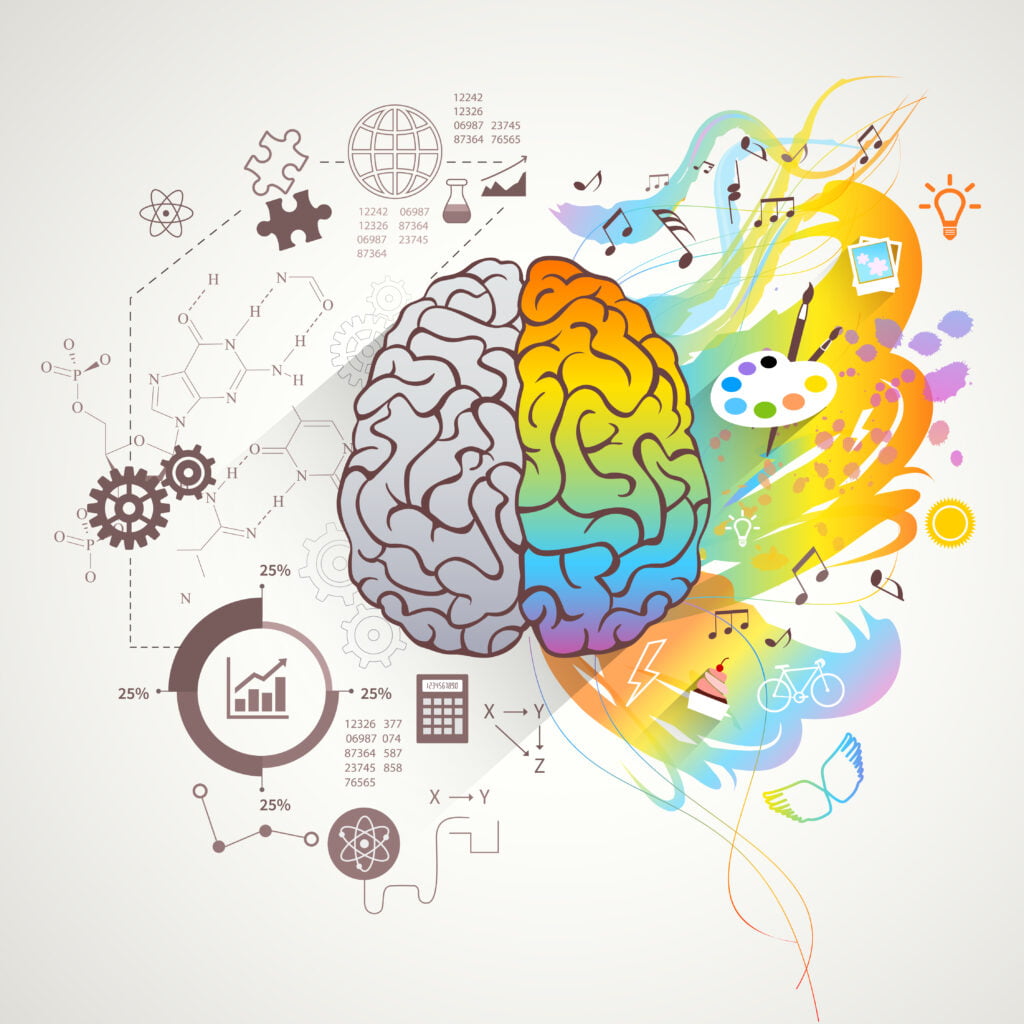FREE SHIPPING OVER $50
Boost Your Brain Power with the Keto Diet
When most people think of the keto diet, they think of weight loss and improved physical health. But did you know that the keto diet can also boost your brain power? The ketogenic diet has been shown to improve cognitive function, enhance focus, concentration, and even protect against age-related cognitive decline.
In this article, we’ll explore the science behind the keto and brain function. We’ll also provide practical tips and strategies for implementing a keto diet for optimal brain health.

What is the Keto Diet
The ketogenic diet is a high-fat, low-carb diet that aims to induce a state of ketosis in the body. Ketosis is a metabolic state in which the body produces molecules called ketones from stored fat, which are used as a primary energy source instead of glucose from carbohydrates. This metabolic state (ketosis) allows the body to burn fat for energy instead of carbohydrates, resulting in weight loss and other potential health benefits. If that sounds too confusing you can think of the keto diet as a fireplace that burns logs instead of gas, providing a steady, long-lasting source of warmth and comfort.
A high fat low-carb diet offers several potential health benefits like weight loss, improved blood sugar control, increased energy level and as we’ll discuss below “improved cognitive function”.
How Does the Keto Diet Affect Brain Function

The science behind ketones and brain function is still being studied, but some research suggests that ketones may have a positive impact on cognitive function. When the body is in a state of ketosis, it produces ketones from stored fat, which the brain can use as an alternative source of energy to glucose. Studies have found that this can enhance brain function, increase mental clarity and alertness, and even protect against neurodegenerative diseases like Alzheimer’s and Parkinson’s. Additionally, the keto diet may also lead to improvements in other health markers like blood sugar and insulin levels, which can indirectly benefit brain function.
The ketogenic diet also reduces inflammation in the brain which plays a role in brain disorders. It achieves this by reducing the production of inflammatory molecules and increasing the production of anti-inflammatory molecules.
Unlocking the Mysteries of Keto Brain Fog
Are you diving into the keto diet world but concerned about encountering the infamous “brain fog” on your journey? Fear not, as it’s a common, albeit temporary, side effect that often emerges during the initial stages of ketosis. Understanding the reasons behind keto brain fog and how to tackle it can make your transition into the keto lifestyle much smoother.
What is Keto Brain Fog?
Some individuals experience mental fogginess and reduced cognitive clarity when they first start the ketogenic diet. This phenomenon is commonly referred to as keto brain fog. It occurs as your body adapts to this low-carb, high-fat eating plan. During this phase, your brain adjusts to using ketone bodies, produced in the absence of carbohydrates, as an alternative fuel source.
The Science Behind Keto Brain Fog
Keto brain fog usually emerges within the first few days to weeks of starting the diet. The initial drop in blood sugar levels and the transition from glucose to ketones as the brain’s energy source primarily cause brain fog. While this transition is temporary, it can leave you feeling mentally sluggish and unfocused.
Managing Keto Brain Fog
Fortunately, you don’t have to endure keto brain fog throughout your dietary journey. Some effective strategies can help you minimize its impact:
- Stay Hydrated: Dehydration can exacerbate brain fog symptoms. Ensure you drink enough water, and consider adding electrolyte supplements to maintain balance.
- Increase Healthy Fats: Boosting your fat intake, especially healthy fats like avocados, nuts, and olive oil, can support ketosis and brain function.
- Reduce Carbohydrate Intake Gradually: If you’re concerned about keto brain fog, you can ease into the diet by gradually reducing your carbohydrate intake over a few days instead of going cold turkey.
- Electrolytes are Key: The initial diuretic effect of keto can deplete your body’s electrolytes. Adding more sodium, magnesium, and potassium to your diet or through supplements can help alleviate brain fog symptoms.
- Time and Patience: Most importantly, give your body time to adjust. Keto brain fog is usually a temporary phase that improves as your body becomes fully keto-adapted.
Embrace these strategies, and you’ll navigate the keto diet’s brain fog phase with ease. Remember, it’s a small price to pay for the potential cognitive and health benefits that ketosis can offer.
The Benefits of the Keto Diet for Brain Health
- Improved Focus and Concentration: The keto diet is a unique way to improve your focus and concentration. By restricting carbohydrates and increasing healthy fats, the body shifts into a state of ketosis. This shift in energy source has been shown to improve brain function and mental clarity. In addition, it may help reduce inflammation and oxidative stress in the brain, which can also contribute to improved focus and concentration.
- Enhanced Memory: The production of ketones through the ketogenic diet provides a steady source of energy for the brain, allowing for enhanced focus and concentration that can aid in memory retention. Overall, the it offers a powerful tool for boosting brain health and improving memory function.
- Protection against Cognitive Decline: The ketogenic diet has been linked with improved cognitive function. It does this by reducing inflammation and oxidative stress in the brain. The diet can protects against age-related memory decline and potentially even diseases like Alzheimer’s and Packinson’s.
Keto Foods that Boost Brain Power
When it comes to enhancing brain function with the keto diet, it’s crucial to know which foods can be your mental allies. These keto-friendly options can potentially alleviate brain fog and contribute to enhanced cognitive function.
- Fatty Fish: Fatty fish like salmon, mackerel, and trout are rich in omega-3 fatty acids, which are essential for brain health. Omega-3s have been linked to improved memory and a reduced risk of cognitive decline.
- Avocado: Avocado is a keto superstar. Healthy fats, particularly monounsaturated fats, pack this fruit and support healthy blood flow. This, in turn, helps ensure that your brain gets the oxygen and nutrients it needs.
- Nuts and Seeds: Walnuts, chia seeds, and flaxseeds are excellent choices. They contain alpha-linolenic acid, another form of omega-3 that can benefit brain health.
- MCT Oil: Medium-chain triglycerides (MCTs), found in oils like coconut oil, can provide a quick source of energy for your brain. The body readily converts MCT oils into ketones, which the brain can use for fuel.
- Leafy Greens: Spinach, kale, and other leafy greens are rich in antioxidants and vitamin K. They are known to support brain health and improve cognitive function.
- Berries (in Moderation): While most fruits are high in carbs, some berries like blackberries and raspberries are lower in carbs and can provide antioxidants that benefit the brain.
- Dark Chocolate (in Moderation): Dark chocolate with a high cocoa content contains flavonoids that may enhance memory and cognitive function. Ensure it’s low in sugar to keep it keto-friendly.
- Turmeric: This spice contains curcumin, known for its anti-inflammatory and antioxidant properties. It may help improve brain function and reduce the risk of brain diseases.
Including these keto foods in your diet can not only support your body’s transition into ketosis but also give your brain the nutrients it needs for optimal function.
How to Implement the Keto Diet for Brain Health
- Start Slowly and Gradually: It is advised to slowly and gradually ease into the ketogenic diet. You start to slowly reduce your carb intake and increase your fat intake to help your body adjust to using fat as its primary fuel source. It’s also important to monitor your progress and adjust as needed. Use tools like food diaries or tracking apps to keep track of your daily macros (carbohydrates, protein, and fat).
- Focus on Whole, Nutrient-Dense Foods: High quality nutrient-dense foods like fish, eggs, non-starchy vegetables, etc is essential for optimal brain health. Processed foods high in sugars and artificial ingredients can negatively impact brain function and mood. Sticking to whole, natural foods to helps fuel the brain and keep you in optimal condition.
- Stay Hydrated: Staying hydrated is crucial for brain function, especially when following the keto diet. Drinking plenty of water, along with consuming electrolytes from sources like bone broth or supplements, can help maintain proper hydration levels. Always remember to drink water throughout the day and replenish electrolytes as needed to keep your brain and body performing at their best.
- Get Plenty of Sleep and Exercise: Sleep and exercise are crucial for brain health. To optimize both on the keto diet, aim for 7-8 hours of quality sleep and incorporate regular exercise. Stick to low-impact exercises like walking, yoga, or weight lifting. Fuel your body with nutrient-dense foods and stay hydrated to support brain function during physical activity.
FAQs
Yes, the keto diet is generally safe for brain health when followed correctly. However, it is important to consult with a healthcare professional before starting any new diet or exercise plan.
Some people may experience brain fog on the keto diet, especially during the transition phase. Proper hydration and electrolyte balance can often help manage brain fog.
Foods that are high in healthy fats and nutrients are best for brain health on the keto diet. Examples include avocado, nuts and seeds, olive oil, fatty fish, and leafy greens.
Conclusion
The ketogenic diet isn’t just a weight loss tool it’s also a powerful way to boost your brain function. By following a keto diet, you can enhance focus and concentration, improve memory, and protect against age-related cognitive decline.
With the right approach to optimal nutrition, you can boost your brain power and achieve peak cognitive function with the keto diet. So why not try some of our keto snack recipes, like our Keto Pepperoni Chips or Keto Lettuce Wraps?



